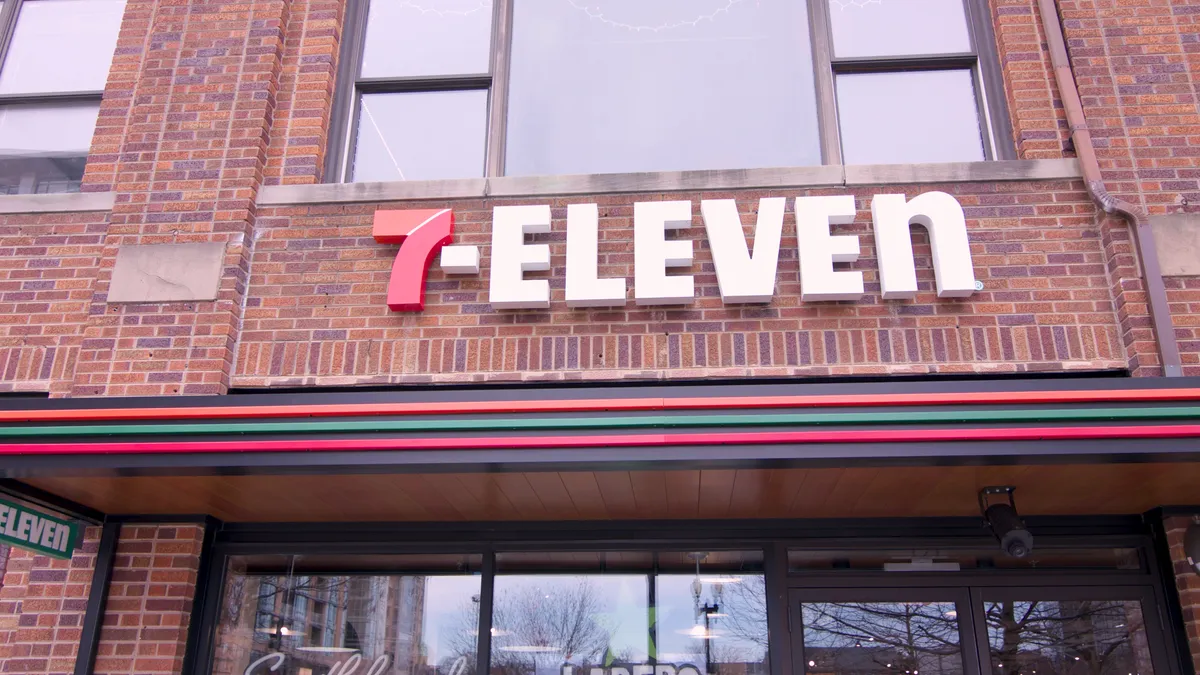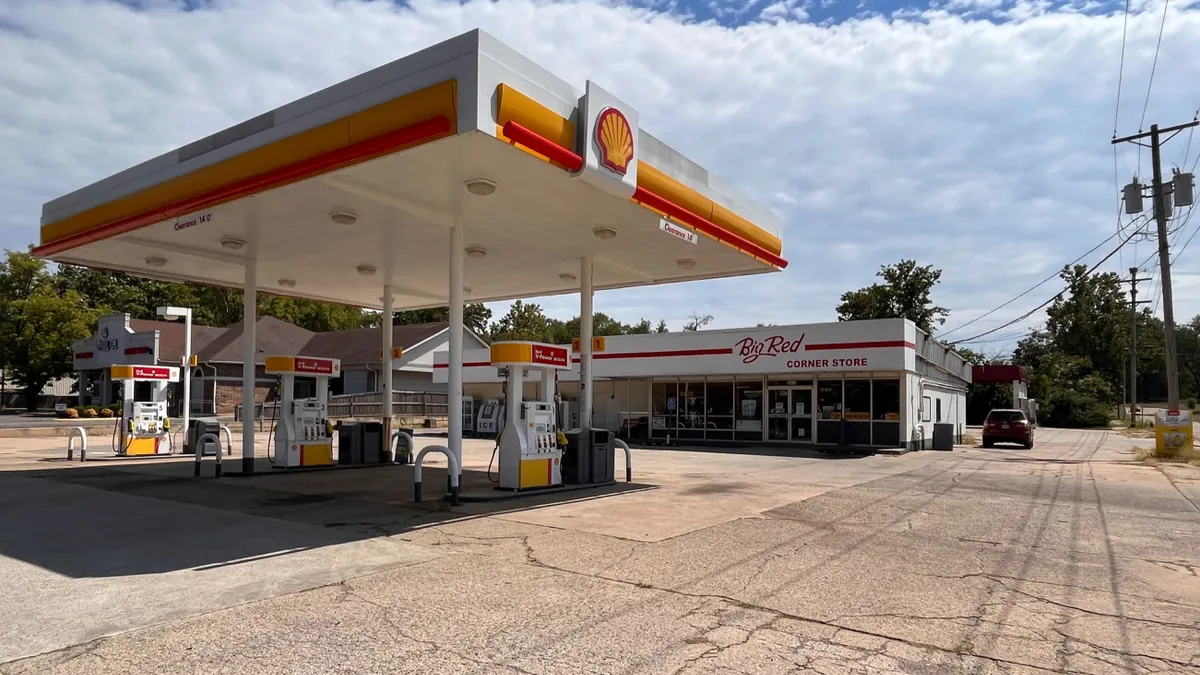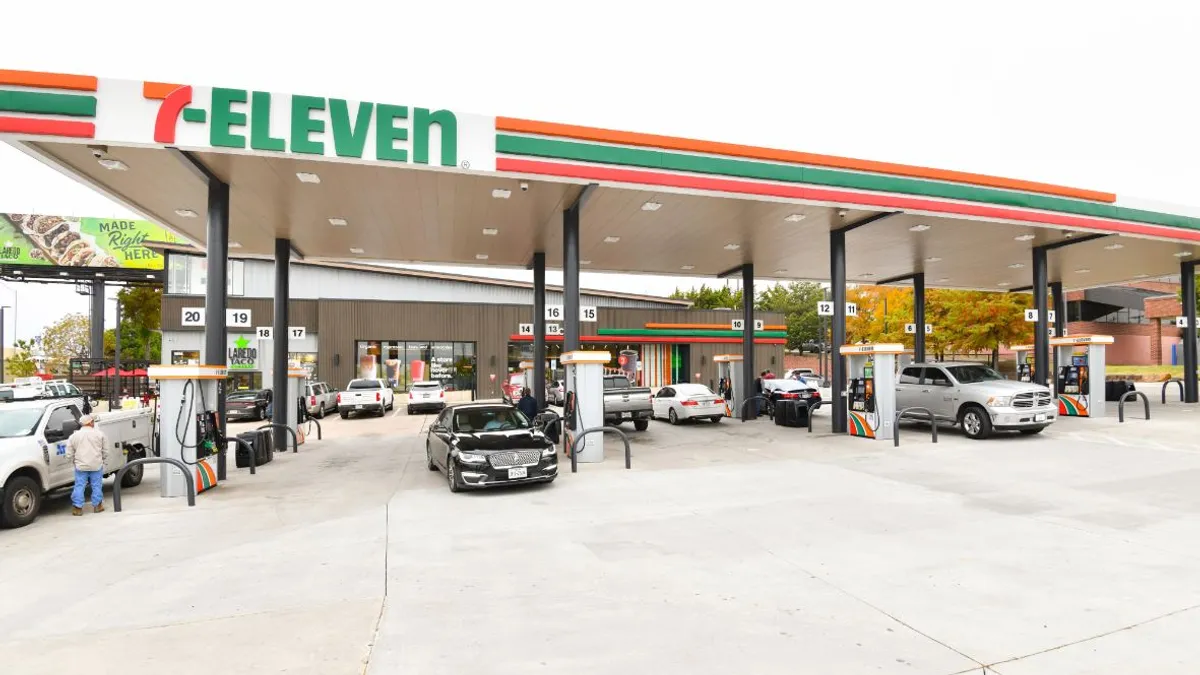Dive Brief:
- 7-Eleven could face more than $77 million in penalties after the the U.S. Federal Trade Commission sued the retailer for making an “anticompetitive acquisition” in St. Petersburg, Florida, four years ago, according to an FTC press release.
- According to the lawsuit, which was filed in the U.S. District Court for the District of Columbia on Monday, the company bought the fuel outlet without giving the FTC 30 days prior notice. This violated a consent order it signed in 2018.
- The FTC is seeking penalties for the more than 1,500 days 7-Eleven was in violation of the order before selling the store. 7 Eleven said in a statement it is working the the FTC to resolve the matter.
Dive Insight:
The lawsuit stems from 7-Eleven’s acquisition of more than 1,000 Sunoco sites in 2018 for $3.3 billion. At the time, the FTC alleged that the deal would hurt 76 local markets, including St. Petersburg. The government said the acquisition would have given 7-Eleven control of too many stores in a single area, potentially allowing it to inflate prices due to a lack of competition.
As part of a deal to get the acquisition approved, 7-Eleven agreed to divest stores in some of those areas and alert the FTC before buying certain third-party sites in some areas for 10 years, among other stipulations.
However, the retailer is accused of never flagging the St. Petersburg purchase “because 7-Eleven’s internal controls (such as they were) for ensuring compliance with the Consent Order were wholly inadequate,” according to the lawsuit. This led to the retailer allegedly filing multiple reports that falsely claimed it was in compliance with its obligations under the consent order.
After acquiring the location, 7-Eleven tore down and rebuilt the store, opening the new building to the public in May 2020. Later, when the discrepancy was discovered, 7-Eleven sold the location to a third party.
While the offending store is no longer in 7-Eleven’s portfolio, the lawsuit says it’s still pursuing charges because the years when it operated that location harmed customers and enriched the retailer.
The FTC also alleges 7-Eleven has been acting in bad faith, as evidenced both by its poor system for flagging sites that it would need to report to the FTC and its repeated false filings to that body.
In a statement, 7-Eleven wrote, "We are aware of the lawsuit filed by the Federal Trade Commission (FTC). We have been working in good faith with the FTC to rectify an oversight involving one store in St. Petersburg, Florida. Not only did we self-report to the FTC after discovering this unintentional error, but we also then divested this store expeditiously. We hope this matter can be resolved quickly and fairly."
In addition to this situation, the FTC claims 7-Eleven continues to pursue anticompetitive deals.
According to the lawsuit, “7-Eleven has sought to acquire nearly 5,000 retail fuel outlets since 2018 … spending $24 billion on two significant acquisitions, both of which were found by the Commission to violate the federal antitrust laws.”
Penalties for violating the consent order can be up to $50,120 for each day the company was not in compliance and the FTC claims 7-Eleven was in violation for 1,547 days for a maximum penalty of $77,535,640.
7-Eleven’s parent company Seven & i Holdings is also named in the suit.
Irving, Texas-based 7-Eleven operates, franchises and/or licenses more than 13,000 stores in the U.S. and Canada.
This story has been updated with a statement from 7-Eleven.









